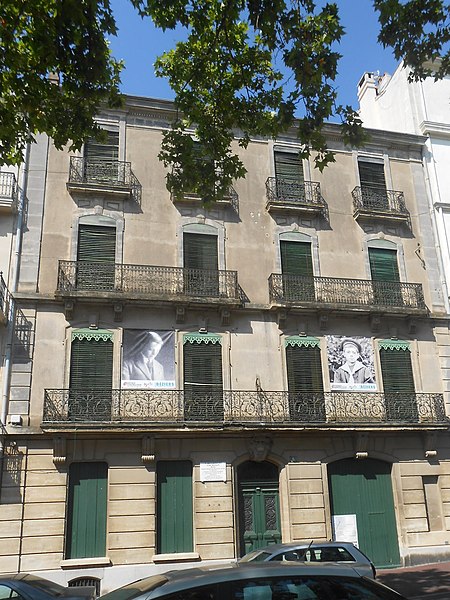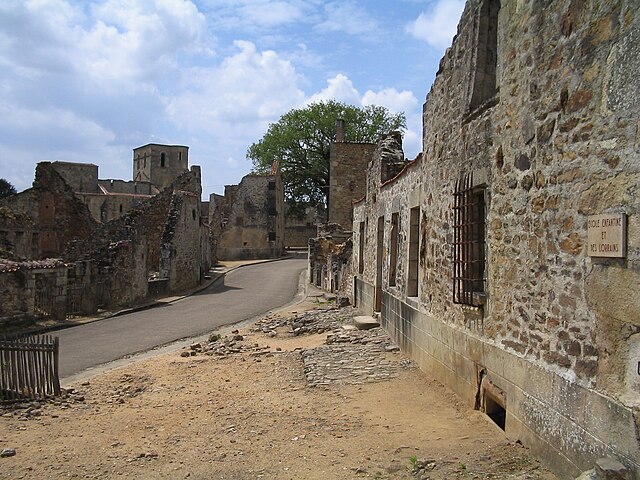Jean Moulin was a French civil servant and resistant who succeeded in unifying the main networks of the French Resistance, a unique act in Europe. He served as the first President of the National Council of the Resistance during World War II from 27 May 1943 until his death less than two months later.
Moulin in 1937
Birthplace of Jean Moulin in Béziers.
Public notice signed by Jean Moulin, urging the population of Eure-et-Loire department to be calm in the face of the German invasion.
House where Moulin was tortured in La Taye, Saint-Georges-sur-Eure in the Eure-et-Loire department.
The French Resistance was a collection of groups that fought the Nazi occupation of France and the collaborationist Vichy régime in France during the Second World War. Resistance cells were small groups of armed men and women who conducted guerrilla warfare and published underground newspapers. They also provided first-hand intelligence information, and escape networks that helped Allied soldiers and airmen trapped behind Axis lines. The Resistance's men and women came from many parts of French society, including émigrés, academics, students, aristocrats, conservative Roman Catholics, Protestants, Jews, Muslims, liberals, anarchists, communists, and some fascists. The proportion of French people who participated in organized resistance has been estimated at from one to three percent of the total population.
French milice and resisters, July 1944
The cemetery and memorial in Vassieux-en-Vercors where, in July 1944, German Wehrmacht forces executed more than 200 people, in reprisal for the Maquis's armed resistance. The town was later awarded the Ordre de la Libération.
Identity document of French Resistance fighter Lucien Pélissou
The ruins of Oradour-sur-Glane, in the Limousin region of the Massif Central








